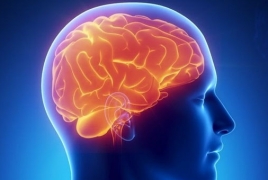PET scans may change care for people with memory loss July 19, 2017 - 15:28 AMT PanARMENIAN.Net - Does it really take an expensive brain scan to diagnose Alzheimer’s? Not everybody needs one but new research suggests that for a surprising number of patients whose memory problems are hard to pin down, PET scans may lead to changes in treatment, The Associated Press reports. The findings, reported Wednesday, July 19, mark a first peek at a huge study under way to help determine if Medicare should start paying for specialized PET scans that find a hallmark of Alzheimer’s — a sticky plaque called amyloid. Alzheimer’s is the most common form of dementia, and classic symptoms plus memory tests often are enough for a reliable diagnosis. But unusual symptoms could mark another form of dementia that, while there are no cures, could require different symptom care. And on the other end of the spectrum, it’s hard to tell if mild memory loss might be an early Alzheimer’s signal, a more treatable condition such as depression, or even age-related decline. “We’re not accurate enough,” said Dr. Gil Rabinovici of the University of California, San Francisco, who is leading the new research. “Patients know there’s something wrong. Often they can sense in their gut that it’s not normal aging,” he added. Without a clear-cut test, “doctors are very reluctant to make the diagnosis in many cases.” Until a few years ago, amyloid build-up could only be seen during autopsies. Older types of PET scans show what region of the brain appears most affected, of limited help. Yet it’s not clear how best to use the new amyloid-detecting scans, which can cost up to $6,000. They can rule out Alzheimer’s if there’s little amyloid. But cognitively healthy seniors can harbor amyloid, too, and Medicare won’t pay for the new scans outside of a few research studies. One of those is the IDEAS study, which is testing the impact of amyloid-detecting PET scans in more than 18,000 Medicare beneficiaries. To enroll, patients either must have atypical dementia with an unclear cause — or have particularly puzzling “mild cognitive impairment,” or MCI, early memory problems that raise the risk of later developing dementia. Researchers check if doctors’ initially recorded treatment plans — medications, counseling or additional testing — were altered by patients’ PET results. That happened in about two-thirds of the cases, according to preliminary findings from nearly 4,000 patients who were the first to enroll. Most changes involved medications that can temporarily ease Alzheimer’s symptoms, said Rabinovici, who presented the findings at the Alzheimer’s Association International Conference in London. The PET scans found 70 percent of the dementia patients indeed had amyloid build-up, pointing out those who might benefit from those drugs and those who won’t. More intriguing, just 54 percent of the MCI patients had amyloid build-up, putting them at higher risk for later Alzheimer’s. For the rest, “Alzheimer’s disease was effectively ruled out, so it’s something else,” Rabinovici said. The early findings don’t prove PETs affect health outcomes. Authorities said a total of 192 Azerbaijani troops were killed and 511 were wounded during Azerbaijan’s offensive. In 2023, the Azerbaijani government will increase the country’s defense budget by more than 1.1 billion manats ($650 million). The bill, published on Monday, is designed to "eliminate the shortcomings of an unreasonably broad interpretation of the key concept of "compatriot". The earthquake caused a temporary blackout, damaged many buildings and closed a number of rural roads. Partner news |